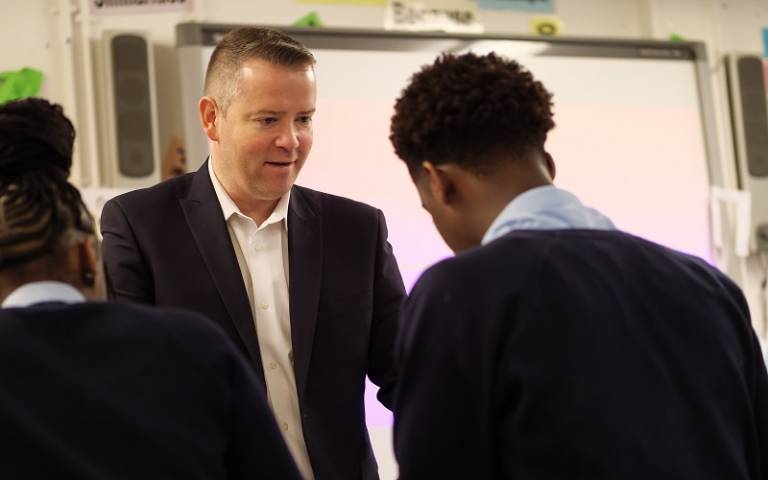IOE academic explores education for future generations at international conference
28 March 2019
UCL Institute of Education (IOE) academic Dr Zachary Walker has joined a panel discussion at the World Innovation Summit for Education (WISE) summit in Paris exploring how schools can develop resilient school leaders.

The discussion focused on how school leaders must constantly adapt to a changing world while at the same time preparing children for an uncertain future. The panel examined the qualities required for leaders to lead change and create enabling policy environments that allow space for teachers and leaders to achieve outcomes.
In addition to the panel discussion, Dr Walker also penned a blog for WISE, focusing on nurturing critical thinking in a post-truth world. He argues that it is crucial for teachers to teach students how to form opinions carefully, thoughtfully, and based on reality.
There are three important strands to this including teaching students to fact check, introducing research terminology and concepts to the classroom, and promoting extracurricular activities that encourage students to ask questions, such as investigative journalism classes.
Writing for WISE ed.review, Dr Walker said: “As educators, we need to model evaluation, engage in critical thinking and debate, and show how facts inform our own opinions through the example we set everyday. This is especially important when we think about social change. In an era of fake news, alternative facts, and media shaming, how we navigate our own lives and interactions with society is more important than ever for our students to practice and observe.”
Dr Walker also took part in an interview on human connections and using technology for learning experiences.
Links
- View Dr Zachary Walker’s research profile
- Watch the WISE interview with Dr Zachary Walker
- Department of Psychology and Human Development
 Close
Close

